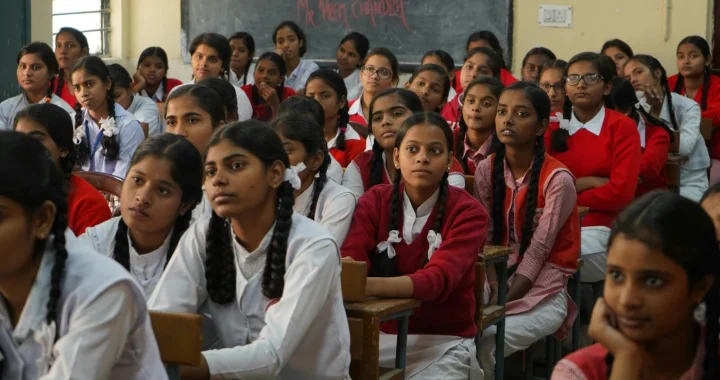Beyond the Controversy of Period Leave

Photo: Freepik.
Have you ever had to work through debilitating pain? With our current landscape of work and employment systems, the answer is probably yes. For those who go through the menstrual cycle, the answer might even be yes, monthly. In response, some countries, regions, and companies have a period leave policy. What is it, and how is it controversial?
Period Leave Overview
People who go through monthly menstrual cycles experience pain in varying degrees and duration. Some might feel mild symptoms of nausea and cramps that last several days, while others can experience intense, debilitating cramps to the point of vomiting and fainting. Symptoms can also begin as far as a week before. Additionally, underlying health conditions also affect the severity of the pain.
Period pains can cause discomfort and affect people’s daily lives, including at work. Therefore, the period leave policy emerged to accommodate those who need to take a few days off during menstruation. It is often seen as a part of employers’ responsibilities in supporting women’s health and rights in the workplace.
Worldwide Implementations
How is this policy implemented worldwide?
Many Asian countries seem to have the policy in place, though the implementation varies. Around 1947, Japan established a law stating that companies must agree to grant unpaid period leave for women who request it for as long as they need. A 2020 labor ministry survey revealed that only around 30% of companies offer full or partial pay.
Meanwhile, women in South Korea have the right to one unpaid day off per month for menstrual leave. In Taiwan, partial pay is offered for three-day menstrual leave under the Act of Gender Equality in Employment.
In 2003, Indonesia passed a law granting women the right to two days of paid period leave per month without prior notice. A similar law was also passed in Zambia in 2015. Female workers in Zambia can call in to take ‘Mother’s Day,’ referring to a day off for period leave without prior arrangements.
On the other side of the world, Spain adopted legislation for paid period leave in February 2023, making it the first European country to do so. Under the bill, workers are entitled to three days paid leave for period pain with a doctor’s note.
Outside national laws, the period leave policy also pops up at the provincial and city levels. In places without period leave laws, the private sector picks up the slack. Some companies have their own period leave policy as a part of their framework.
Controversy from the Ground
Implementing the period leave policy seems like the right solution to balance productivity and health. In reality, however, the policy has generated debates and mixed reactions, especially from female workers.
One issue is regarding stigma and privacy concerns. Taking time off due to menstruation means letting people know your biological schedule. While it is true that menstruation is a natural occurrence of the body, many cultures still consider the topic taboo.
“It’s not the sort of thing you want to share with male colleagues, and it could lead to sexual harassment,” said a female worker in her 30s working in Japan to the Guardian. The concern of being seen as a burden and using their ‘women privileges’ also plagued most female workers.
Meanwhile, companies that do have the policy for period leave rarely encourage their workers to utilize it. According to the Guardian, several female workers in Japan admitted that they did not know such a policy existed, while others had never thought of using it. One of them said, “It was mentioned in the company policy document I received when I started working there, but I didn’t read it thoroughly.”
Another issue is the current patriarchal, highly capitalistic cultures in the workplace. In a report on women’s health at work, Deloitte found that company cultures become one of the challenges for female workers to openly discuss topics around menstruation.
In a commentary in the Global Times, Yang Lan, a woman from Shanghai, notes that many employees in China are paid, evaluated, and promoted based on how many hours they work. She said women who ask for period leave could end up being financially and professionally penalized if the law were not fully enforced.
“Yes, Anhui’s highly publicized period pain policy is a nice gesture toward gender equality … But the ‘bloody’ fact is that accepting paid leave whenever a woman has cramps will ultimately do more harm than good for our cause, as it weakens us at the workplace,” she wrote.
Beyond Policy
Adopting the period leave law is a gender-responsive step toward decent work for all. However, having the policy in place is not enough. At the very least, it is crucial to raise awareness among workers that such a law exists as an option for those who need it. Having a clear outline—parameters and penalties included—is also essential to its robust, widespread enforcement.
Beyond that, a cultural shift must happen. While the menstrual cycle may remain a private subject for individuals, it is important to strip it of the ‘shame’ or ‘taboo’ aspect in society. Discussions of menstruation framed in a light that normalizes or neutralizes it can de-stigmatize the conversation surrounding it, including the topic of period leave.
Each culture has its own starting point in the discussion of period leave. In general, though, the connecting thread of context is that menstruation has been used to perpetuate sexism in the workplace through objectification and gender essentialism. Going forward, the conversation on period leave must go beyond having a policy in place—it must involve women’s voices from all layers of society, be intersectional, and challenge existing heteropatriarchal, ableist, and highly capitalistic cultures in the workplace.

Co-create positive impact for people and the planet.
Amidst today’s increasingly complex global challenges, equipping yourself, team, and communities with interdisciplinary and cross-sectoral insights on sustainability-related issues and sustainable development is no longer optional — it is a strategic necessity to stay ahead and stay relevant.


 From Anxiety to Action: How Youth Climate Activism Is Evolving
From Anxiety to Action: How Youth Climate Activism Is Evolving  India’s Supreme Court Declared Menstrual Health and Hygiene as Fundamental Rights
India’s Supreme Court Declared Menstrual Health and Hygiene as Fundamental Rights  Impacts of E-waste Pollution on Animals and Human Health
Impacts of E-waste Pollution on Animals and Human Health  Africa’s Solar Energy Surge: Why 2025 Was a Breakthrough Year
Africa’s Solar Energy Surge: Why 2025 Was a Breakthrough Year  Agrihoods: Integrating Farms and Urban Neighborhoods into Sustainable Communities
Agrihoods: Integrating Farms and Urban Neighborhoods into Sustainable Communities  Women in Waste Management: Asia’s Circularity Runs on Women. Its Policies Still Don’t
Women in Waste Management: Asia’s Circularity Runs on Women. Its Policies Still Don’t